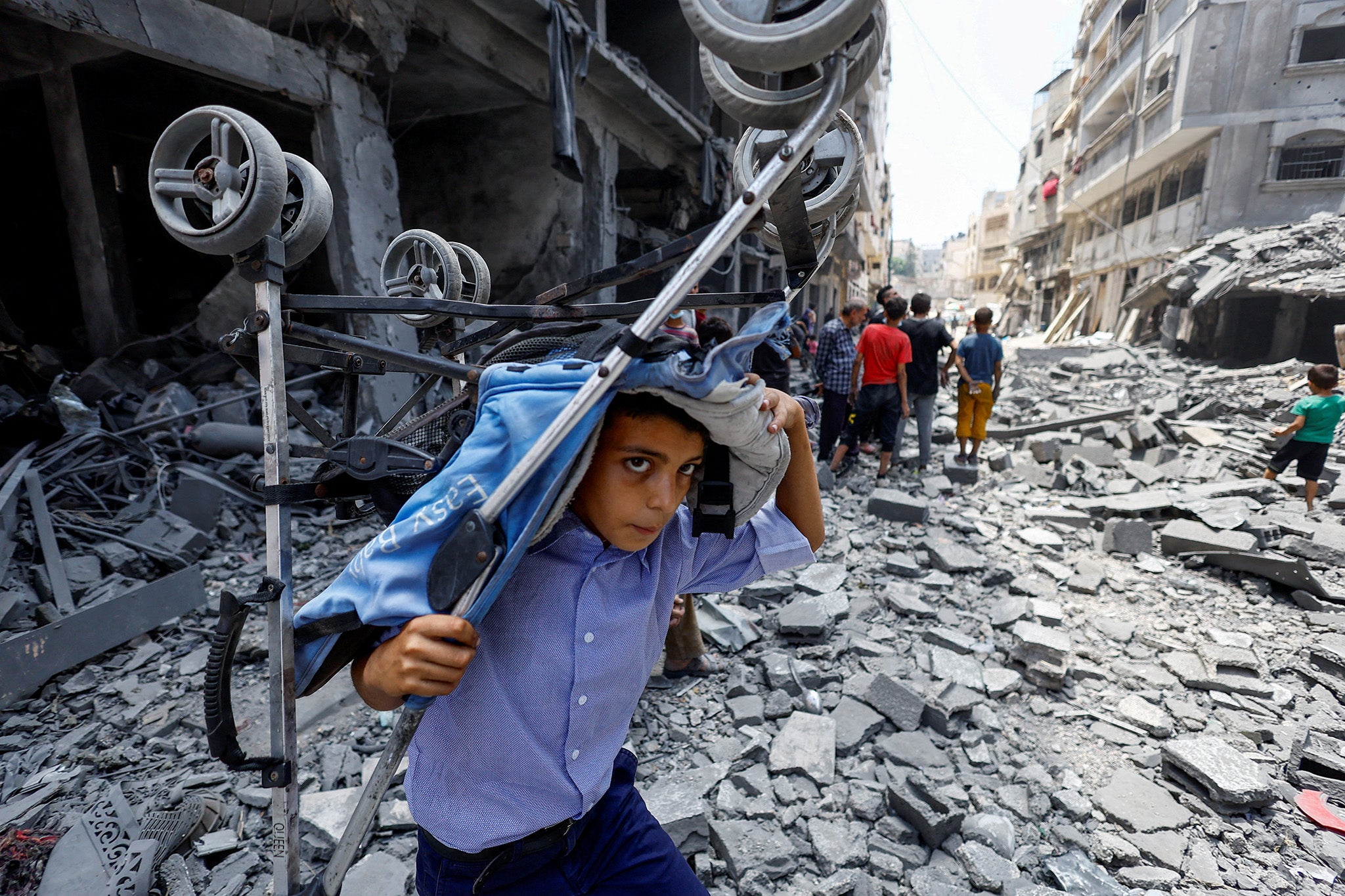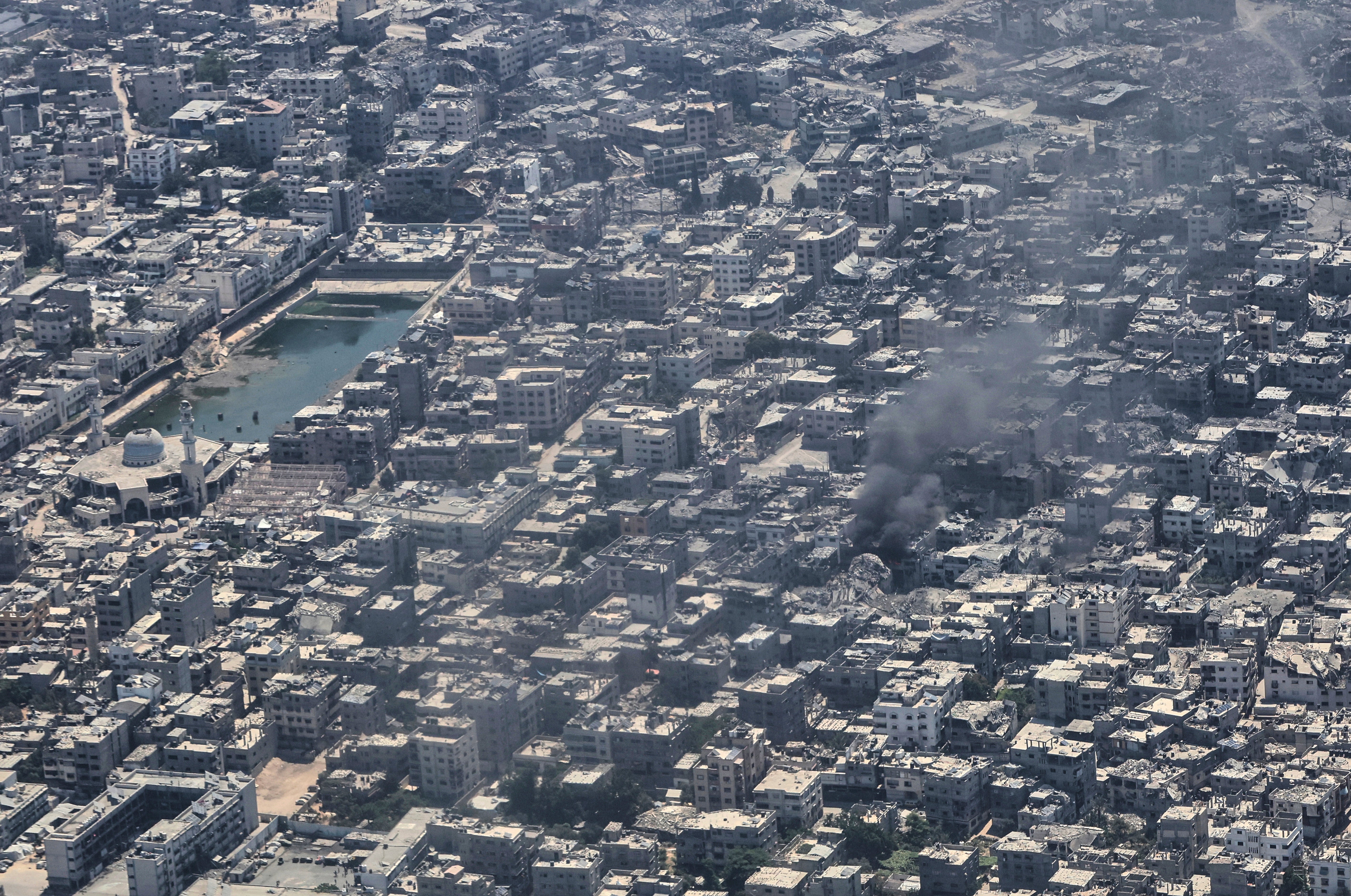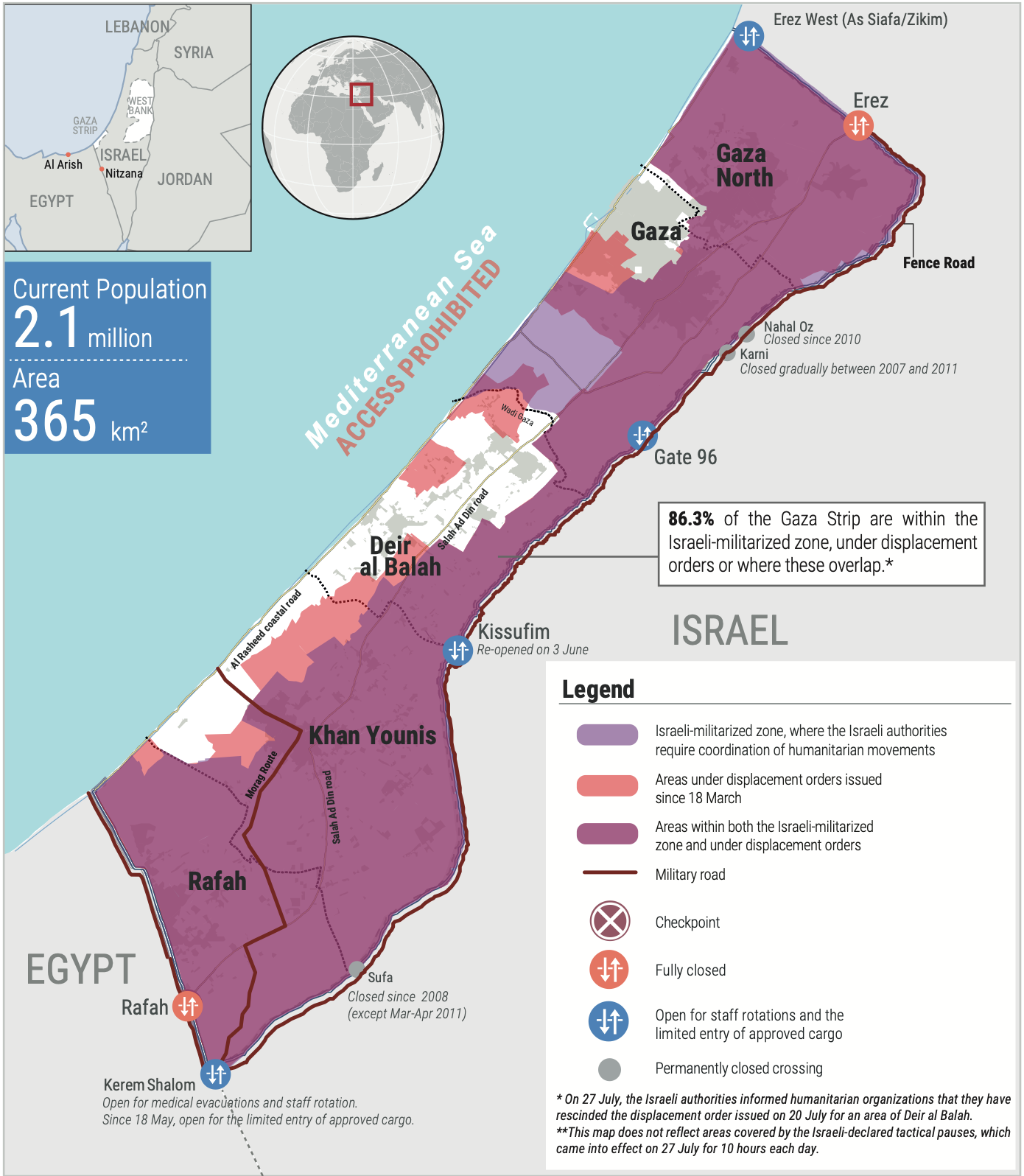Israel is facing a growing chorus of international condemnation and potential sanctions following Benjamin Netanyahu’s decision to occupy all of Gaza in a renewed offensive.
The plans, revealed after a marathon meeting with his cabinet, include a total evacuation of Gaza City – said to be completed by 7 October this year – after which the north of the strip will effectively be a free-fire zone for Israel’s forces in their final attempt to wipe out Hamas.
Netanyahu’s new policy has tested close allies as Israel faces accusations of driving Gaza’s 2.1 million people close to famine and as its prime minister is indicted for war crimes.
In Israel, families of hostages held by militants in Gaza and opposition leaders condemned Netanyahu for a decision that they said would put hostages’ lives at risk, adding: “We can’t leave them in the hands of these monsters any longer.”
Sir Keir Starmer denounced the decision as wrong and urged Israel to reconsider the new offensive, or it will “bring more bloodshed”. “What we need is a ceasefire, a surge in humanitarian aid, the release of all hostages by Hamas and a negotiated solution,” he added.
Liberal Democrat leader Sir Ed Davey went further, saying: “Rather than sitting on its hands and issuing strongly worded statements, the UK government needs to take decisive action. Keir Starmer needs to stop the export of all UK arms to Israel – today – and sanction Netanyahu and his cabinet.”
Germany, a key European ally of Israel, immediately banned the export of weapons to Israel that could be used in Gaza, a move Netanyahu criticised for rewarding Hamas terrorism.
German chancellor Friedrich Merz said the ban would remain in place “until further notice” after the “even harsher military action” by the Israeli military made the chances of a ceasefire increasingly difficult.
Elsewhere, Norway’s vast sovereign wealth fund is also reviewing its investments in Israeli companies.
Ursula von der Leyen, the EU Commission’s president, demanded that the plan to take over Gaza “must be reconsidered”, while EU Council president Antonio Costa added that the action “must have consequences for EU-Israel relations”.
In its response, Belgium summoned the Israeli ambassador for a dressing down, saying its foreign ministry wanted to “express total disapproval of this decision, but also of the continued colonisation ... and the desire to annex the West Bank”.
The Netherlands said the Netanyahu plan was “the wrong move”, and was expected to intensify its efforts to impose economic sanctions on Israel by demanding that the EU end its “association agreement”, which gives it some free trade access to Europe.

Jordan, Saudi Arabia and Turkey all condemned Israel’s plans for what, effectively, will be the open-ended reoccupation of Gaza, which was last controlled by Israel in 2005. Netanyahu is keen to avoid the use of the term “occupation” and refers to the planned campaign as a “takeover”.
However, there was a resounding silence from the US. Mike Huckabee, Mr Trump’s ambassador to Israel, said that some countries appeared to be putting pressure on Israel rather than on the militant group Hamas, whose deadly attack on Israel in 2023 ignited the war.
The Israeli military says it controls around 75 per cent of Gaza. Amir Avivi, a retired Israeli brigadier general, estimated that if the military did take Gaza City, it would give Israel control of about 85 per cent of the strip.
Around 900,000 people now live in Gaza City, including many who have been displaced by the military.
Under international law, an invading nation is responsible for the wellbeing of the occupied people – regardless of whether the incoming forces want the responsibility.

Netanyahu said on Thursday that Israel did not want to keep the Gaza Strip, but to establish a “security perimeter” and to hand over the territory to Arab forces.
Hamas has warned the Israeli government that seizing control of Gaza City would mean “sacrificing” the hostages inside the besieged enclave.
The militant group said the Israeli government “does not care about the fate of its hostages”, adding in a statement: “They understand that expanding the aggression means sacrificing them.”
There are an estimated 50 hostages still held in Gaza, of whom Israeli officials believe 20 are alive. Most of those freed so far emerged as a result of diplomatic negotiations. Talks toward a ceasefire that could have seen more hostages released collapsed in July.
Mahmoud Abbas, the president of Palestine, described Netanyahu’s plan as “dangerous” and one that could result in an “unprecedented humanitarian catastrophe”. He added that it is part of a wider policy of “genocide, systematic killing, starvation, and siege”.

The president’s office made a direct appeal to President Trump to “intervene to halt the implementation of these resolutions and, instead, to fulfil his promise to end the war and pursue lasting peace”.
The Palestinian foreign ministry also warned that the move will push civilians into a “certain death spiral”.
The ministry accused Israel of waging a war against civilians “without justification”, and condemned the UN Security Council’s failure to act.
The Israeli leader has said there will be no end to the war until Hamas is disarmed.
A full occupation of Gaza would reverse a 2005 decision in which Israel withdrew thousands of Jewish settlers and its forces, while retaining control over its borders, airspace and utilities.
Hamas-led militants triggered the war when they stormed into Israel on 7 October 2023, killing around 1,200 people and abducting 251 people. Israel’s retaliatory campaign has killed over 61,000 Palestinians, according to Gaza’s Health Ministry.







